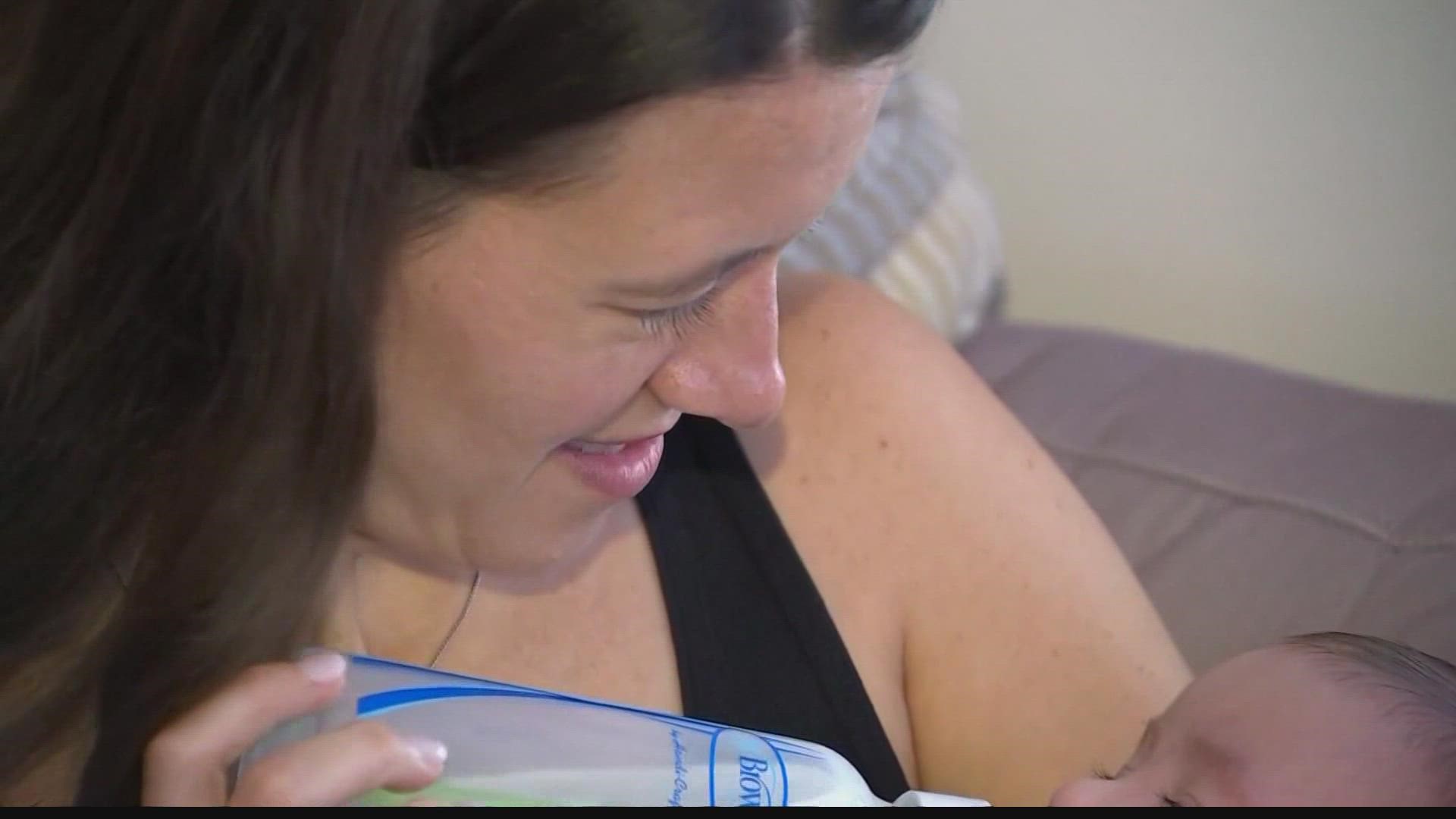INDIANAPOLIS — The area’s largest hospital systems say they do not anticipate receiving any of the emergency formula shipments that arrived in Indianapolis over the weekend.
The first shipment from Europe, authorized by President Joe Biden to relieve a deepening U.S. shortage, arrived in a C-17 cargo plane at Indianapolis International Airport on Sunday.
White House Secretary Karine Jean-Pierre told reporters that 78,000 pounds of formula landed aboard the transport.
The 132 pallets of Nestle Health Science Alfamino Infant and Alfamino Junior formula arrived from Ramstein Air Base in Germany. Another 114 pallets of Gerber Good Start Extensive HA formula are expected to arrive in the coming days.
Altogether, about 1.5 million 8-ounce bottles of the three formulas, which are hypoallergenic for children with cow’s milk protein allergies, are expected to arrive this week.
The White House said these types of formulas are a priority because they serve a critical medical purpose and are in short supply.


The shipments will begin being delivered to hospitals, doctor’s offices and other healthcare providers in critical need, but that apparently does not include IU Health, Ascension St. Vincent or Community Health Network.
"Community Health Network is not anticipating an emergency shipment of Nestle infant formula at this time. Our hospitals are stocked with formula to meet the current needs of infants who require this support," said Bobbie Brooks, spokesperson for Community Health Network.
Emily Garrett, a spokesperson for Ascension St. Vincent, told 13News that the health system has been managing by using other formulas if needed.
“The shortage hasn’t hit us hard. The formula will likely go first to places that have had more trouble,” said Garrett.
“We have not received information indicating Riley Children’s Health is receiving a portion of the formula that was delivered yesterday, at this time. We are able to maintain our formula stock to meet our patients’ needs,” said Katie Oakley, spokesperson for IU Health.
Medical experts have encouraged parents who are struggling with formula supply to contact their healthcare provider for options.

